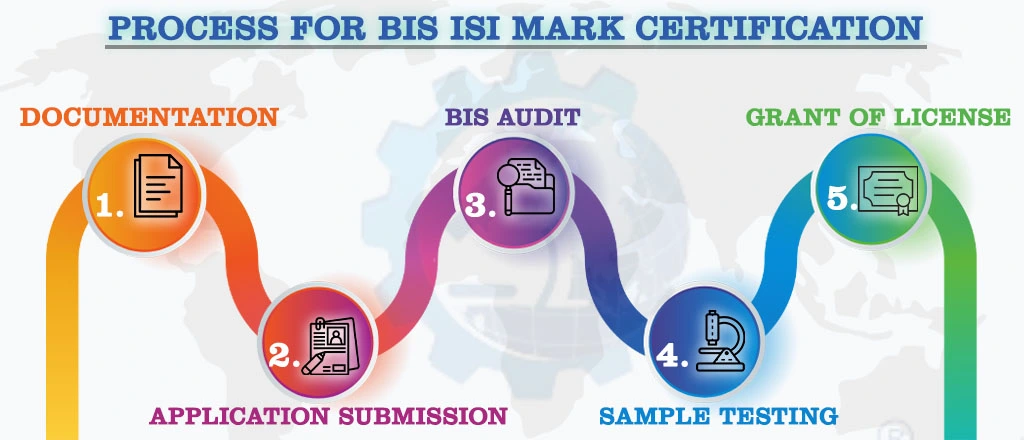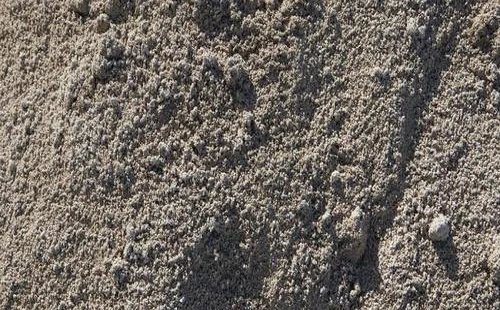BIS CERTIFICATION FOR MASONRY CEMENT
IS 3466:1988
In this competitive scenario, it isn't easy to survive in the market without a standard quality and certified product. BIS license may also be required to sell products in the Indian market.
To get BIS certification and produce a
standard quality product, the manufacturer must ensure that their
product must follow the specified Indian standard.
Let's take a closer look at IS 3466: 1988 for masonry cement.
IS 3466: 1988 covers masonry cement. This standard specifies the manufacturing process and the chemical and physical requirements of masonry cement to be used for all general purposes where mortars for masonry are required. Masonry cement is specially blended cement that is mixed with sand and water in specific proportions to create a strong binding mortar.
Masonry cement shall be produced by intergrinding a mixture of Portland cement clinker with pozzolanic materials such as fly ash and calcined clay pozzolana; or non-pozzolanic materials such as limestone, dolomitic limestone, conglomerates, dolomite, granulated slag, and waste materials such as carbonated sludge, mine tailings, etc., and gypsum and air-entraining plasticizer in appropriate proportion so that the finished product complies with requirements of the standard.
When tested according to the methods specified, masonry cement shall meet the physical requirements specified in the standard. The manufacturer must ensure that the cement meets the requirements of this standard. A laboratory shall be adequately maintained, in which the various tests shall be carried out according to the methods specified in the standard.
tests
The following test shall be carried out for masonry cement.
- Fineness
- Setting time
- Air content
- Water retention
- Soundness
- Compressive strength
- Staining
Packing of masonry cement shall be done as per IS 3466:1988. Labeling and marking shall be done in accordance with IS 3466:1988. The BIS Standard Mark (ISI Mark) shall be printed on each bag or drum of masonry cement or on the label applied to it, provided that the material in each bag or package to which the mark is thus applied meets the specification. The Manufacturer must obtain a BIS license from the Bureau of Indian Standards to use a standard mark (ISI Mark). The BIS grants a license based on a successful assessment of manufacturing infrastructure, quality control, testing capabilities, and production process.

Indian Stantdard for Cements
| IS Number | Product Name |
|---|---|
| IS 1489 (PART 2) | PORTLAND POZZOLANA CEMENT |
| IS 16415:2015 | COMPOSITE CEMENT |
| IS 455:2015 | PORTLAND SLAG CEMENT |
| IS 12330 | SULPHATE RESISTING PORTLAND CEMENT |
| IS 12600 | LOW HEAT PORTLAND CEMENT |
| IS 1489 (PART 1): 2015 | PORTLAND POZZOLANA CEMENT |
| IS 269:2015 | ORDINARY PORTLAND CEMENT |
| IS 6909:1990 | SUPERSULPHATED CEMENT |
| IS 8042:2015 | WHITE PORTLAND CEMENT |
| IS 6452:1989 | HIGH ALUMINA CEMENT |
| IS 8043:1991 | HYDROPHOBIC PORTLAND CEMENT |
| IS 8229:1986 | OIL WELL CEMENT |
| IS 15895:2011 | HIGH ALUMINA REFRACTORY CEMENT |
| IS 16993:2018 | MICROFINE ORDINARY PORTLAND CEMENT |
NOTE:
For Detailed Information about the Procedure for BIS ISI Certification
Visit :
• ISI Mark Certification for Domestic Manufacturers• ISI Mark Certification for Foreign Manufacturers
Conclusion:
If a product falls under the scope of the BIS Conformity Assessment Scheme, All the manufacturers, importers, and foreign entities must obtain BIS ISI Certification. The Bureau may cancel the License if the product fails to meet certification requirements.
Aleph INDIA has been serving the industry as a single-window operator for all product regulatory compliance. We can assist importers or manufacturers in meeting all criteria for importing or selling a product in the Indian market.
International Audits & Participation
Testimonials
BIS REGISTRATION FOR ELECTRONIC & IT PRODUCT
In the era of globalization, world trade is growing rapidly and henceforth, Manufacturing and Import/Export businesses are also growing drastically...View More
BIS CERTIFICATE FOR FOREIGN MANUFACTURER
The Economy of India-the fastest developing economy on the globe with the capabilities that help it matches up with the biggest international...View More
PRODUCT CERTIFICATION SCHEME (ISI MARK) FOR DOMESTIC MANUFACTURERS
Anything a person buys from food to cars, clothes to electronics, branded to unnamed products there is always a question that wanders in one’s...View More
WIRELESS PLANNING AND COORDINATION (WPC)
WPC: Wireless means communication done from one point to another point without the wires and cables. Electromagnetic waves carry the ...View More
BUREAU OF ENERGY EFFICIENCY (BEE) CERTIFICATE
BEE CERTIFICATE: Energy is the future, and its conservation is the way of the bright future. Everyone claims the environment is important...View More
E-WASTE MANAGEMENT
E-waste is one of the world's fastest-growing trash streams. We currently manufacture almost 50 million tones of it each year...View More
Request a call back.
Would you like to speak to one of our Senior Technical advisers over the phone? Just submit your details and we’ll be in touch shortly. You can also email us if you would prefer.
BIS REGISTRATION FOR ELECTRONIC & IT PRODUCT
In the era of globalization, world trade is growing rapidly and henceforth, Manufacturing and Import/Export businesses are also growing drastically...View More
BIS CERTIFICATE FOR FOREIGN MANUFACTURER
The Economy of India-the fastest developing economy on the globe with the capabilities that help it matches up with the biggest international...View More
PRODUCT CERTIFICATION SCHEME (ISI MARK) FOR DOMESTIC MANUFACTURERS
Anything a person buys from food to cars, clothes to electronics, branded to unnamed products there is always a question that wanders in one’s...View More
WIRELESS PLANNING AND COORDINATION (WPC)
WPC: Wireless means communication done from one point to another point without the wires and cables. Electromagnetic waves carry the ...View More
BUREAU OF ENERGY EFFICIENCY (BEE) CERTIFICATE
BEE CERTIFICATE: Energy is the future, and its conservation is the way of the bright future. Everyone claims the environment is important...View More
E-WASTE MANAGEMENT
E-waste is one of the world's fastest-growing trash streams. We currently manufacture almost 50 million tones of it each year...View More
View All Services
Request a call back.
Would you like to speak to one of our Senior Technical advisers over the phone? Just submit your details and we’ll be in touch shortly. You can also email us if you would prefer.






























